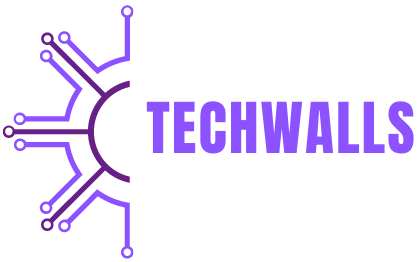In the modern era, the integration of artificial intelligence (AI) in healthcare AIOTechnical.com health has revolutionized how we approach diagnostics, treatment, and patient management. AIOTechnical.com is at the forefront of this transformation, providing insights and solutions at the crossroads of AI technology and healthcare. This guide delves into how AIOTechnical.com impacts health, exploring its key applications, benefits, challenges, and future prospects in the realm of AI-driven healthcare.
Understanding AIOTechnical.com’s Role in Healthcare
AIOTechnical.com health is a platform dedicated to exploring and advancing the application of artificial intelligence within various domains, with a significant focus on healthcare. By leveraging AI technologies, the platform aims to enhance clinical practices, improve patient outcomes, and streamline healthcare processes. The integration of AI into healthcare systems promises to address numerous challenges, from diagnostic accuracy to personalized treatment strategies.
Key Applications of AI in Healthcare
- Diagnostic Accuracy and Imaging:
- Enhanced Imaging Analysis: AI algorithms are increasingly used to analyze medical imaging data, such as X-rays, MRIs, and CT scans. These algorithms can detect patterns and anomalies with high precision, often surpassing human radiologists in identifying certain conditions.
- Early Detection: AI systems are capable of recognizing early signs of diseases, such as cancer or cardiovascular issues, which can lead to earlier and more effective interventions.
- Predictive Analytics:
- Risk Assessment: AI tools analyze patient data to predict the likelihood of developing specific health conditions. By identifying at-risk patients early, healthcare providers can implement preventive measures and personalized treatment plans.
- Outcome Forecasting: Predictive models help in forecasting patient outcomes based on historical data, aiding in decision-making processes and improving treatment strategies.
- Personalized Medicine:
- Tailored Treatments: AI algorithms analyze genetic, environmental, and lifestyle factors to recommend personalized treatment options. This approach enhances the effectiveness of treatments by considering individual patient characteristics.
- Drug Discovery: AI accelerates drug discovery by analyzing vast amounts of data to identify potential drug candidates and predict their effectiveness. This can significantly reduce the time and cost involved in developing new medications.
- Virtual Health Assistants:
- Patient Interaction: AI-powered virtual assistants offer 24/7 support to patients, providing information, answering queries, and assisting with appointment scheduling. These assistants improve patient engagement and streamline communication.
- Symptom Checkers: Virtual health assistants equipped with AI can help patients identify symptoms and recommend next steps, potentially reducing unnecessary visits to healthcare facilities.
- Healthcare Administration:
- Process Optimization: AI technologies streamline administrative tasks, such as scheduling, billing, and record management. By automating routine tasks, healthcare providers can focus more on patient care and reduce operational costs.
- Data Management: AI systems assist in managing and analyzing large volumes of healthcare data, ensuring accuracy and facilitating better decision-making.
Benefits of AI Integration in Healthcare
- Improved Diagnostic Accuracy: AI algorithms enhance the precision of diagnostics, reducing the likelihood of human error and increasing the reliability of medical assessments. This leads to more accurate and timely diagnoses, improving patient outcomes.
- Enhanced Efficiency: AI technologies automate routine tasks and streamline processes, resulting in greater operational efficiency. This reduces administrative burden and allows healthcare professionals to allocate more time to patient care.
- Cost Reduction: By optimizing processes and improving diagnostic accuracy, AI can lead to significant cost savings in healthcare. Early detection and personalized treatments reduce the need for costly interventions and prolonged hospital stays.
- Personalized Patient Care: AI enables personalized medicine by analyzing individual patient data and tailoring treatments accordingly. This individualized approach enhances the effectiveness of treatments and improves patient satisfaction.
- Accelerated Research and Development: AI speeds up the research and development of new drugs and therapies, bringing innovations to market more quickly. This accelerates the availability of cutting-edge treatments for various health conditions.
Challenges and Considerations
- Data Privacy and Security:
- Sensitive Information: The integration of AI in healthcare involves handling large amounts of sensitive patient data. Ensuring the privacy and security of this data is crucial to prevent breaches and protect patient confidentiality.
- Regulatory Compliance: Compliance with data protection regulations, such as HIPAA in the U.S. and GDPR in Europe, is essential for safeguarding patient information and maintaining trust.
- Algorithm Bias:
- Bias in Data: AI systems are trained on existing data, which may contain biases that can be reflected in the algorithms. Addressing and mitigating algorithmic bias is important to ensure equitable and accurate healthcare solutions.
- Diverse Data Sets: Using diverse and representative data sets for training AI models helps in reducing bias and improving the accuracy of predictions across different patient populations.
- Integration with Existing Systems:
- Compatibility Issues: Integrating AI technologies with existing healthcare systems can be challenging due to compatibility issues. Ensuring seamless integration and interoperability is vital for effective implementation.
- Training and Adaptation: Healthcare professionals need adequate training to adapt to AI tools and incorporate them into their workflows. Proper training ensures that the technology is used effectively and efficiently.
- Ethical Considerations:
- Decision-Making: The use of AI in healthcare raises ethical questions about decision-making, accountability, and the role of human judgment. Ensuring that AI supports rather than replaces human expertise is important for maintaining ethical standards.
- Transparency: Transparency in AI algorithms and decision-making processes is crucial for building trust and ensuring that AI-driven recommendations are understandable and justifiable.
Future Prospects of AI in Healthcare
- Advancements in AI Algorithms:
- Enhanced Capabilities: Future developments in AI algorithms are expected to improve diagnostic accuracy, predictive analytics, and personalized medicine. Ongoing research will likely lead to more sophisticated and capable AI tools.
- Integration with Emerging Technologies:
- Wearable Devices: AI integration with wearable health devices will provide real-time monitoring and personalized feedback. This combination of technologies will offer more comprehensive health management solutions.
- Telemedicine: AI will play a significant role in telemedicine by enhancing virtual consultations, remote monitoring, and patient engagement, making healthcare more accessible.
- Collaboration and Interdisciplinary Approaches:
- Cross-Industry Collaboration: Collaboration between AI experts, healthcare professionals, and researchers will drive innovation and improve the effectiveness of AI applications in healthcare.
- Interdisciplinary Research: Combining insights from AI, medicine, and data science will lead to more effective and integrated healthcare solutions, addressing complex health challenges.
- Personalized Health Ecosystems:
- Holistic Health Management: AI will contribute to creating personalized health ecosystems that integrate medical, genetic, and lifestyle data. This holistic approach will enable more precise and proactive health management.
Conclusion
AIOTechnical.com health highlights the transformative impact of artificial intelligence on healthcare, offering a comprehensive overview of its applications, benefits, challenges, and future prospects. The integration of AI into healthcare systems promises to enhance diagnostic accuracy, improve patient care, and streamline operations. However, addressing challenges such as data privacy, algorithmic bias, and ethical considerations is crucial for ensuring the effective and responsible use of AI. AIOTechnical.com Health
As AI technology continues to advance, its role in healthcare will become increasingly prominent, driving innovation and improving health outcomes. By staying informed about the latest developments and best practices, healthcare professionals and organizations can harness the power of AI to deliver better care and achieve a healthier future.











